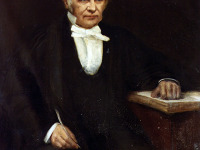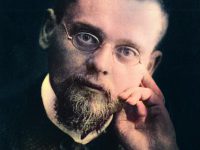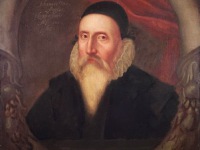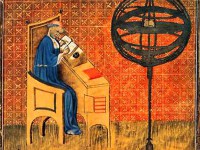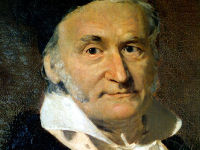William Hamilton and the Invention of Quaterions
On August 4, 1805, Irish physicist, astronomer, and mathematician William Rowan Hamilton was born. He made important contributions to classical mechanics, optics, and algebra, but is perhaps best known as the inventor of quaternions, a number system that extends the complex numbers. ‘This young man, I do not say will be, but is, the first mathematician of his age.’ (Astronomer Bishop Dr. John Brinkley about 18-year-old Hamilton) At Age 13 Hamilton spoke…
Read more

